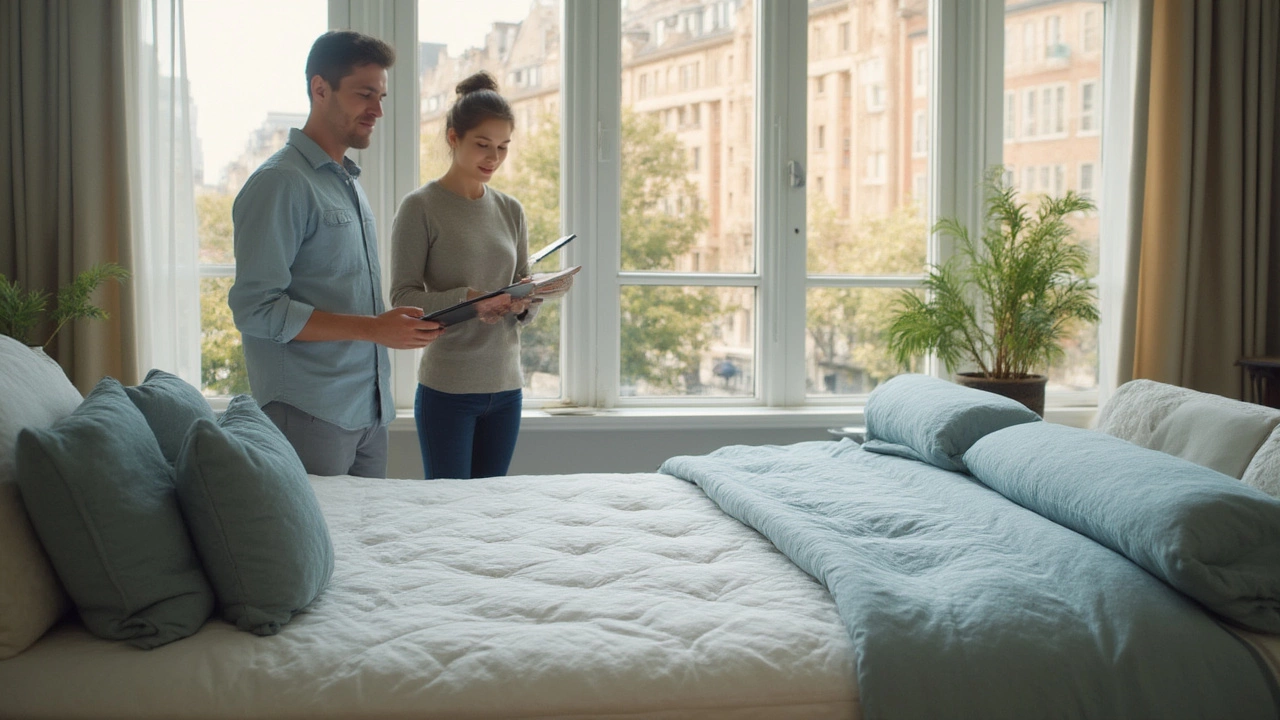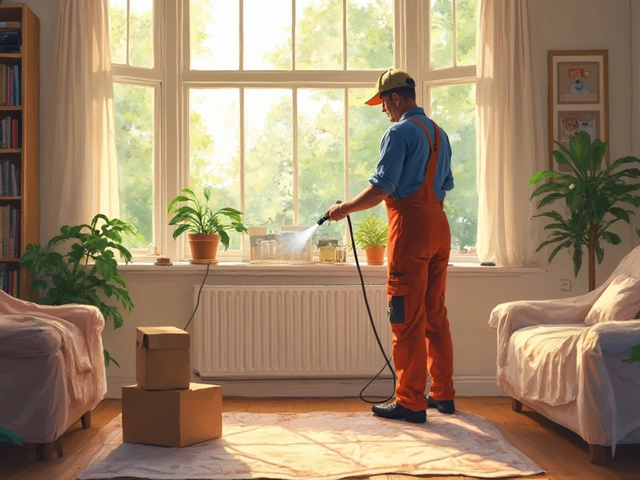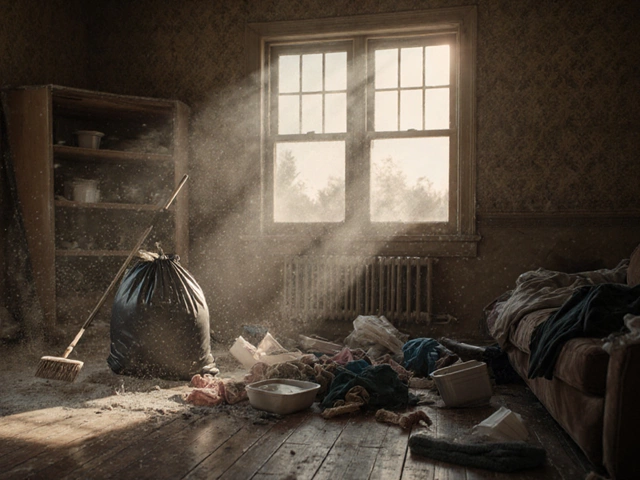Ever hand in your keys after a move, then get whacked with a cleaning bill you didn’t see coming? One sneaky spot that often pops up in disputes between tenants and landlords: the mattress. Beds aren’t exactly easy to toss into the wash, so you probably wonder—does that end of tenancy clean actually include mattress cleaning? Or do you need to roll up your sleeves and get stuck in yourself?
What’s Really Included in Standard End of Tenancy Cleaning?
Most renters think “end of tenancy clean” means the whole place gets blitzed from top to bottom—fridge, oven, carpets, even the curtain rails. But if you check a few cleaning company websites, you’ll see that the definition varies like British weather. Pretty much all services will cover bathrooms, kitchen appliances, cupboards inside and out, skirting boards, switches, sockets, and the floors. Places like bath limescale, browned plug sockets, grime behind the cooker all get the treatment. But then it gets murky.
Mattress cleaning is almost never in the basic checklist. Here’s why: mattress cleaning is a specialized job. It has to tackle dust mites, stains, sweat, odours—more than a quick hoover or going at it with a damp cloth. The tools to do it right aren’t standard issue. Instead, if you read the small print, mattress cleaning is usually an add-on, just like oven deep cleans or wall stain removal. Professional companies offer it, sure, but for an extra fee. A 2023 survey by the Tenancy Deposit Scheme found mattresses are one of the top ten causes of deposit disputes in the UK. Not because renters are leaving them filthy—just because everyone has different standards about what ‘clean’ is for a bed.
This might sound grim, but council advice in places like Bath is clear: if a mattress was part of the rental, it should be “reasonably hygienic” at the end of your tenancy. That word “reasonable” is important—there’s no law demanding a pro deep clean, but if your letting agent finds stains, odours, or visible grime, expect trouble. So, unless the contract mentions mattress cleaning or you spotted it on your cleaning invoice, it’s safe to assume it’s not usually included. You might be expected at least to hoover it—but a proper steam clean is another matter.
Why Does Mattress Cleaning Matter for Renters and Landlords?
You might wonder, why do I care about the mattress at all? There’s more at play here than just hygiene. For tenants, it’s about getting your deposit back, plain and simple. As much as 60% of UK disputes over deposits have to do with cleaning issues, and mattresses can easily fall into this grey area. Landlords care for the opposite reason—they want beds left in a rentable, fresh state so the next tenant isn’t horrified. In Bath and loads of the UK, landlords have been switching to fully-furnished lets, which means more mattresses under scrutiny than ever before.
But it’s not just about protecting money or reputation. Dust mites (tiny critters that love to live in mattresses) can trigger allergies. They love damp and warm places, and mattresses are perfect for them. If a mattress goes years without cleaning, it can become a health problem. The NHS hints that about one in six Brits suffers from allergies—often from dust mites lurking in beds. Surveys say that after just six months, a typical mattress can double its weight in dust and skin cells. No wonder people want the next occupant to start fresh.
One more reason: if you’re renting to students (big business in Bath, by the way), they’re notorious for rough treatment to beds. Landlords might insist on mattress cleaning just as a safety net. Checking your tenancy agreement is the only way to know for sure what you’re on the hook for.
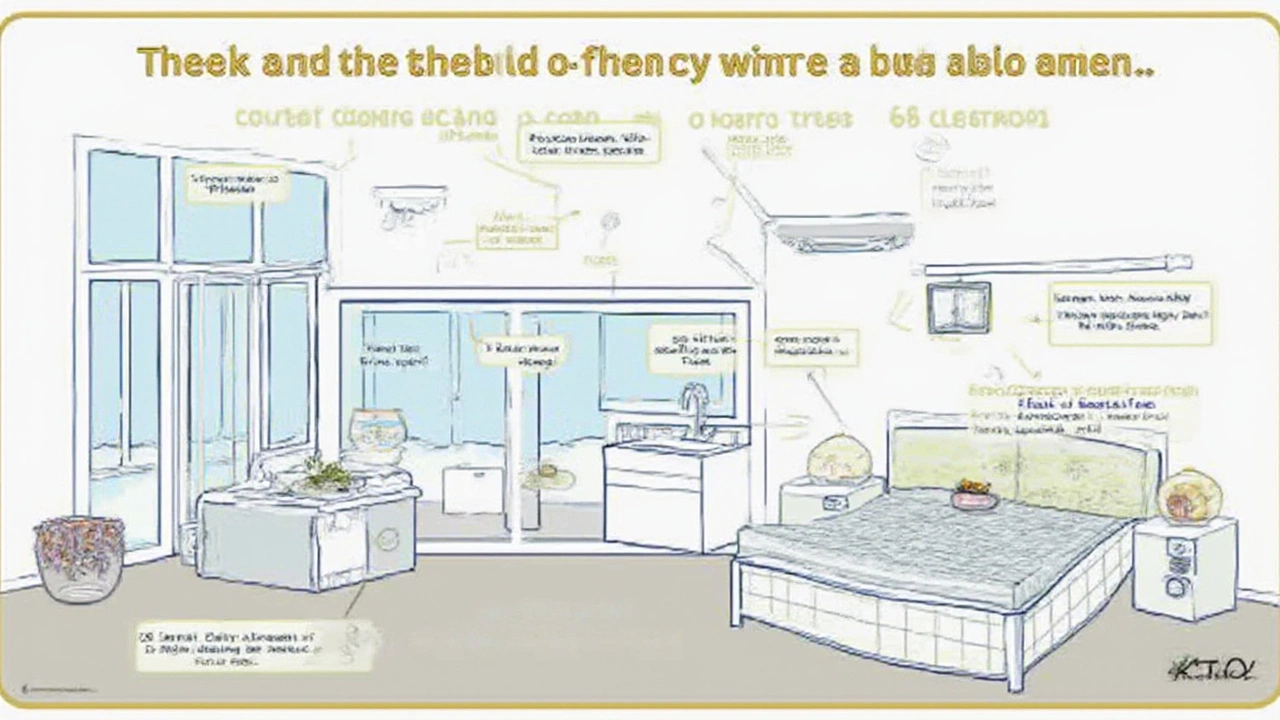
How to Check If Mattress Cleaning Is Included (and What to Do If Not)
The safest move is to get out your tenancy agreement—tedious, but worth it. Scan for anything mentioning “furniture cleaning,” “soft furnishings,” or “upholstery.” Sometimes, a line hiding under “carpets and curtains” could include mattresses, but not always. Some agents in Bath (like many around the UK) now include inventory photos, which can be a blessing when arguing over what’s “clean.”
If the agreement says nothing about mattress cleaning, then check your cleaning quote or invoice. If you booked end of tenancy cleaning as a package, mattress cleaning should be listed specifically as an item. Here’s a quick tip: if the company offers “carpet and upholstery” but doesn’t itemize “mattress,” it’s not included unless you ask. Expect to pay an extra £20-£60 per mattress for a deep clean in Bath in 2025 prices. That’s not peanuts if you’re in a sharehouse with five or six beds.
If it’s not covered and you need to do it yourself to get your deposit back, don’t panic. It’s not as daunting as it sounds. At minimum, a thorough vacuum (with a HEPA filter, if possible), spot treatment for stains (a basic upholstery cleaner or a paste of bicarb and water for fresh marks), and airing for a few hours will do for most agents. If you’ve got access to a steam cleaner (you can rent one for about £25 a day locally), that’s gold. But, don’t saturate the mattress—too much water warps it and makes it mouldy. Let it dry before sticking bedding back on.
- Hoover with an upholstery attachment to get rid of dust mites and dirt
- Spot clean stains using simple cleaners or a paste of bicarb and water
- Sprinkle baking soda across the surface and leave for a few hours to neutralize odours
- Vacuum off the baking soda, air out the mattress by propping it up by a window
- If really stained, rent a proper steam cleaner or call in the pros
The golden rule: take before and after photos. Deposits are big money, and trust me, agents care about “evidence”.
How Cleaning Companies Handle Mattress Cleaning as an Add-on
Let’s get specific. If you call up an end of tenancy cleaning company—especially in Bath, Bristol, or London—they’ll offer a menu of extras and mattress cleaning always sits on that list. You’ll want to know what you get for your money. Usually, a professional mattress clean means vacuuming, hot water extraction (a kind of intense steam cleaning), then a round of UV sanitizing if you’re lucky. The focus is on killing dust mites, lifting out deep dirt and tackling problem stains or old smells.
Here’s the catch: not all cleaners do the job the same way. Some just do a surface vacuum and quick spray, while proper experts will spend an hour or more making sure every inch is spotless. Reputable companies use tools like Kärcher steamers or Prochem hot water extractors, proven to shift stubborn marks and odours. They’ll often finish with a special anti-allergy spray. And yes, it matters. According to the British Institute of Cleaning Science, professional mattress cleaning can remove 98% of allergens from soft furnishings—much higher than DIY alone.
Prices can range depending on area and mattress size. Singles cost less than king-size, obviously. Here’s a handy table for what to expect to pay in Bath this year:
| Mattress Size | Typical Price (Bath, 2025) | Duration (mins) |
|---|---|---|
| Single | £20-£30 | 20-30 |
| Double | £30-£40 | 30-45 |
| King | £40-£60 | 45-60 |
Planning ahead can save you hassle. If you’re moving out soon, ask cleaners to itemize your invoice. Don’t be shy in asking what their mattress cleaning actually involves (hoovering only, or a full steam/wash?). Most tenants never ask, and that’s how deposits get eaten up later. If your agent says the mattress is “not hygienic” after you leave, you’ll need that cleaning invoice and photos to back up your side.
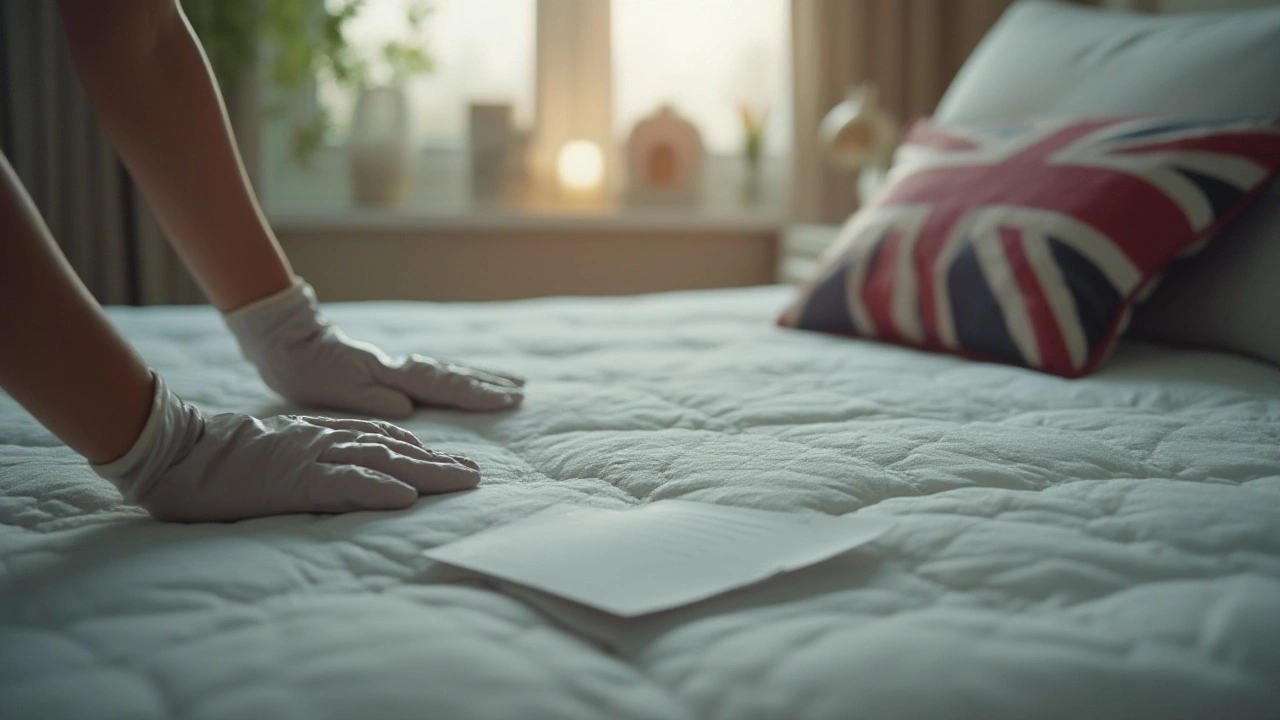
Mattress Cleaning: Tips for Avoiding Deposit Disputes and Staying Healthy
There’s a fine line between ‘clean enough’ and ‘not quite.’ I’ve seen tenants lose £100 off their deposit for a couple of faint tea stains on a mattress—not spilled in the last month, either. So, how do you play it safe? First, don’t cut corners. Even if mattress cleaning is not in the standard tenancy clean, doing a basic session yourself can’t hurt. A small outlay on a bottle of cleaner and some elbow grease trumps wrangling with a lettings agent for weeks.
If your agent or landlord is picky—some honestly are—show them the cleaning invoice and the before–after photos. If you suspect allergies, or if the mattress smells, push for a deep clean. Don’t shrug it off: survey data from British Mattress Survey 2024 showed that 54% of renters have had to sleep on a questionable mattress at move-in. A pro clean once a year helps. But even if you’re a one-off-wash-and-done, the easiest way to stay safe is this:
- Rotate mattress regularly (monthly if possible) to spread out wear and avoid dirt build-up in one spot
- Use a washable mattress protector—one spill and the cover takes the brunt instead of the foam inside
- Leave the windows open during a clean for proper airing and faster drying
- If in doubt, just ask your landlord what standard they expect (many honestly have no clue themselves but will tell you their preference)
- If you provide a professional cleaning invoice, deposit schemes are much less likely to side against you
Tenancy rules favour the prepared. Hop on Google and pull up lots of cleaning company checklists to compare what’s standard for end of tenancy cleaning and what costs extra—mattresses usually fall into that second group, rarely bundled in unless you splash out for an all-inclusive package. If you’re renting out, chop and change your contract to spell out your standards; if you’re renting, read and keep every inventory report you’re handed so you aren’t left footing a bill that wasn’t yours to start with.
